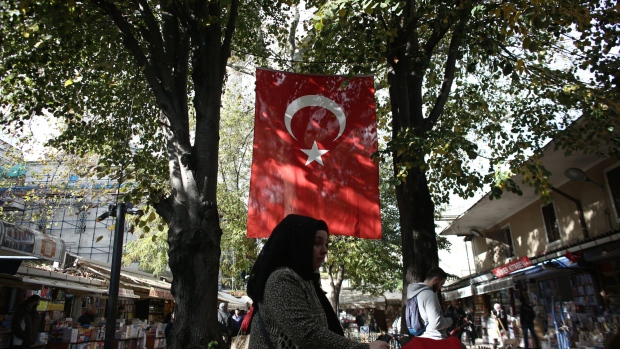May 23, 2018
Turkey's central bank raises rates; lira reverses earlier losses
, Bloomberg News

Turkey’s central bank raised interest rates at an emergency meeting on Wednesday, bowing to pressure from financial markets after the government’s rejection of higher borrowing costs plunged the nation into a currency crisis.
The central bank raised its late liquidity window rate by 300 basis points to 16.5 per cent, after an extraordinary meeting of its monetary policy committee on Wednesday. It kept other rates unchanged, describing the move as a “powerful monetary tightening” and saying it’s ready to continue using all instruments. The lira reversed losses.
The central bank acted after three weeks of turmoil on Turkey’s currency markets. Turkish President Recep Tayyip Erdogan, who’s seeking re-election next month, has publicly opposed any moves to raise interest rates, while investors and economists argued that was the only way to halt the rout. Erdogan has repeatedly listed foreign investors among the enemies seeking to undermine his rule. He told Bloomberg in an interview this month that he’ll seek more control over monetary policy if he wins the June 24 vote.
The president, who’s been running Turkey for 15 years, has come under growing pressure from some ministers and financial officials to allow a central-bank rate increase. He’s due to kick off a campaign for re-election on Thursday, as polls suggest he may face a tougher challenge than in past votes.
'HIGH TIME'
“It’s high time to restore monetary policy credibility & regain investor confidence,” Deputy Prime Minister Mehmet Simsek said on Twitter after Wednesday’s central-bank meeting. He expressed support for the central bank “in doing what’s necessary to stem the slide in lira & achieve price stability.”
The lira gained 0.9 per cent to 4.6286 per dollar as of 8:20 p.m. in Istanbul. It earlier fell as much as 5.5 per cent. The lira’s collapse this year has put many Turkish companies that borrowed in foreign currencies at risk of default.
Read More: QuickTake Q&A on Turkey’s crisis Lira heads for crisis mode What market players are saying Bond-market veteran harries Turkey officials Istanbul bourse switches to liras in meltdown The world’s oldest marketplace is awash with dollars and anxietyThe 300 basis-point increase on Wednesday “was the minimum,” Ozlem Bayraktar Goksen, chief economist at Tacirler Securities in Istanbul, said after the decision.
“There will still be expectations for further rate hikes as consumer inflation accelerates due to recent lira weakness,” she said. “There’s already been damage done to the economy.”
SIMPLE FRAMEWORK
The central bank’s rate-setting committee hadn’t been scheduled to meet until June 7, and it hadn’t communicated with markets for a week before Wednesday’s move.
The bank began forcing lenders into the previously little-used late liquidity window in January 2017. In November that year, it became the only source of cash for commercial banks.
The central bank refrains from calling any one of its multiple different interest rates a benchmark. Governor Murat Cetinkaya said in April that he may soon finalize a plan to simplify monetary policy. That would likely result in a framework more in line with global norms, with a single rate governing all central-bank funding to commercial lenders.